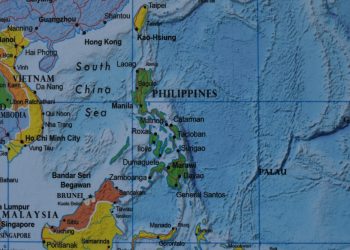Alert by the Standard P&I Club
![]() The Standard P&I Club has issued on its website web alert regarding rules made by the Supreme Court in the Philippines which could, if followed, set an unfortunate precedent in determining whether an illness is work related.
The Standard P&I Club has issued on its website web alert regarding rules made by the Supreme Court in the Philippines which could, if followed, set an unfortunate precedent in determining whether an illness is work related.
A crewmember had been working aboard crude oil tankers since 2004. In 2006 he was diagnosed as suffering from ‘malignant fibrous histiocytoma’ in his left foot. In order for this illness to be considered work related the company doctor stated that the crewmember had to have been exposed to various substances such as arsenic compounds, and vinyl chloride whilst aboard. The crewmember brought a claim for full disability benefits on the basis that his illness was work-related.
The Labour Arbiter held that the crewmember was entitled to full disability benefits. The NLRC agreed. The Court of Appeal reversed this, saying that the illness was not listed as an occupational disease under section 32 of the POEA and the crewmember failed to prove the illness was work related. The Supreme Court reversed the decision of the Court of Appeal and reinstated the NLRC’s decision.
The Court referred to the ‘disputable presumption’ of work related illness at section 20(A)(4) of the POEA in the situation where the illness in question was not listed in section 32. It also made reference to the fact that the company doctor could not say for certain that the illness was not work related. In these circumstances the illness was construed in favour of the crewmember. Of perhaps more significance was the Court’s finding that the employer, by paying the crewmember sick pay, had effectively accepted that the illness was work related and therefore the employer could no longer not argue to the contrary. The Court found that under section 20 of the POEA sick wages were only payable when a seafarer suffered a work related injury or illness during the term of his contract.
The Court’s decision that the payment of sick wages is tantamount to an acceptance that an illness is work related is very difficult to accept as correct. There are often occasions when sick wages are paid because the issue of whether the illness is work related has not been established (for example where there is a disputable presumption that the illness is work related).
Whilst the wording of section 20 of the POEA suggests that the ‘liability’ to pay sick wages only attaches when an illness is ‘work related’, it is arguable that allowance must be made for situations where the question of whether an illness is work related is not clear cut.
In such situations, where there is a disputable presumption that the illness is work related, Members are advised to make it clear to the crewmember that the payment of sick wages is made strictly without prejudice to any future argument as to whether the illness actually is work related. This may help to avoid a similar situation to that reported above.
Source: The Standard P&I Club





























































